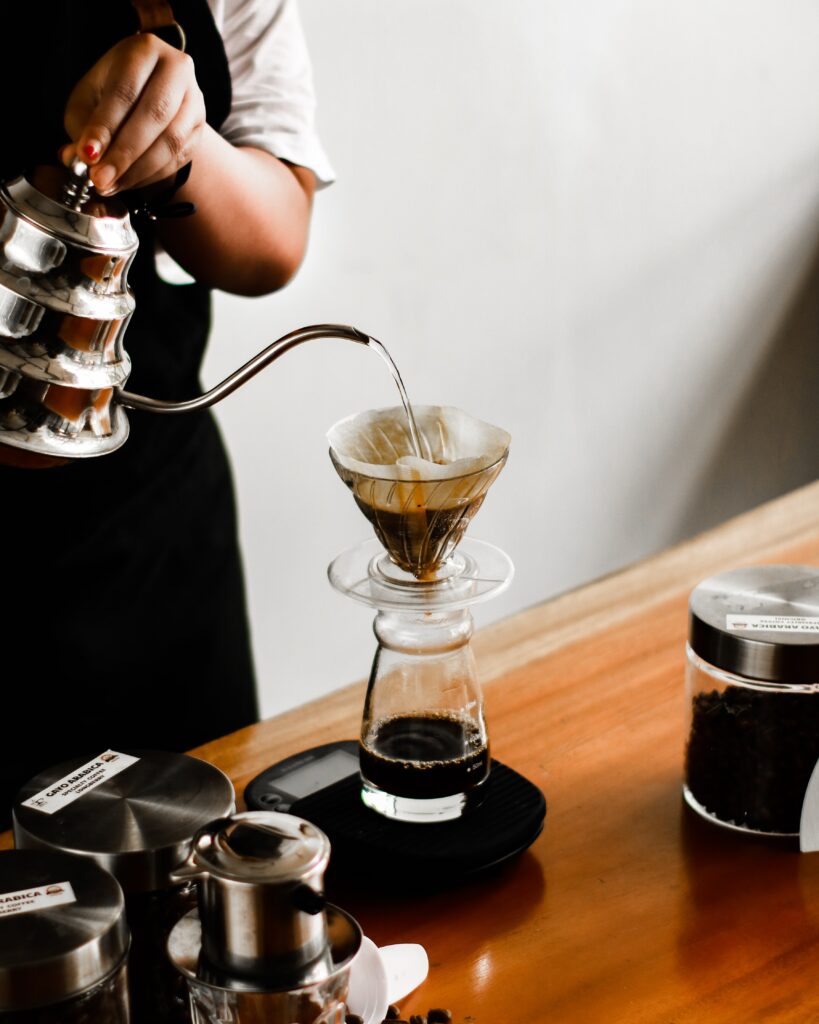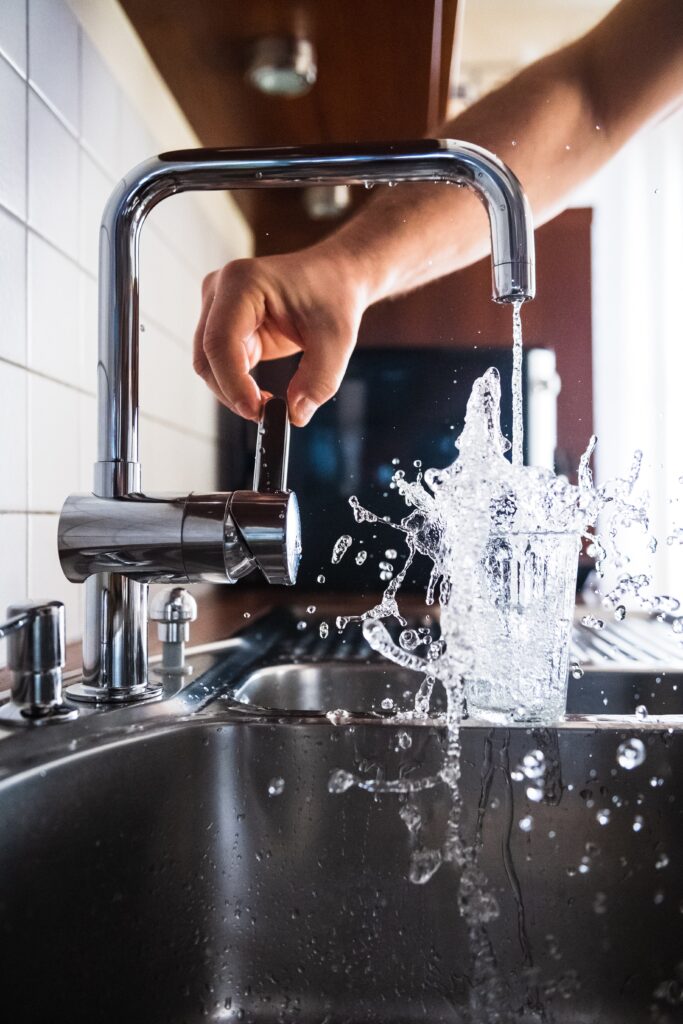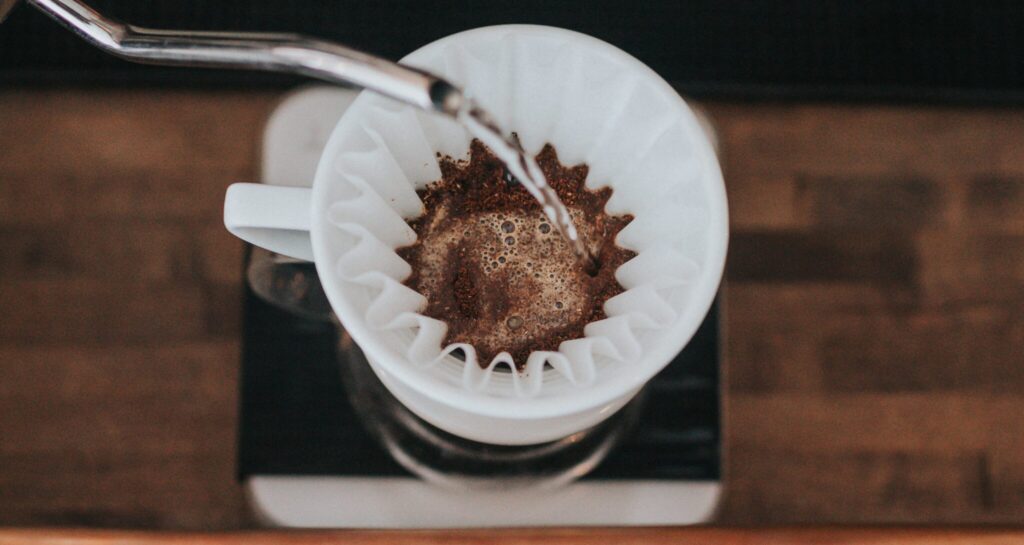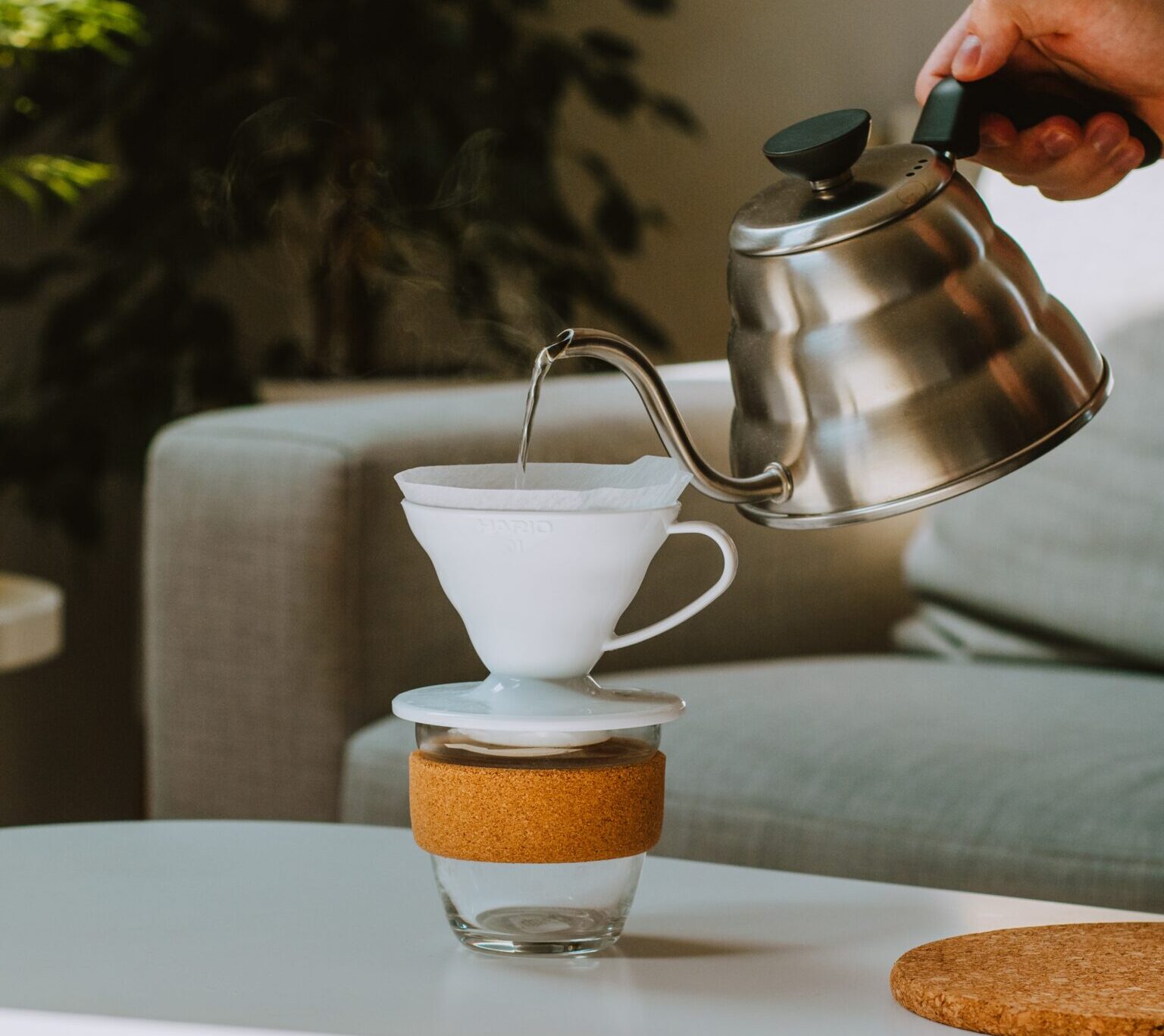If you drink coffee as often as we do, you must spend a lot of time looking for the most flavorful beans and the best-reviewed coffee makers. But have you noticed that your homemade French vanilla cappuccino tastes nothing like what you order at the downtown cafe?
This may come as a surprise to some, but water is the most vital ingredient in brewing the perfect cup of coffee. It turns out that the flavor and texture of your coffee vary depending on whether you use tap, distilled, or filtered water.
Because coffee is 98% water, the type of water you use to brew the ground or roasted beans has a significant impact on its taste. To test this out, make one cup of coffee with tap water and the other with mineral water. Give both a taste, and you’ll be able to tell the difference.
Are you wondering why this happens? Well, the reason is that water is a solvent that reacts chemically with coffee to provide a unique taste. For instance, the flavor and texture of mineral water would be slightly astringent.
You may be asking yourself why there is such a fuss about the “type of water” used in coffee preparation, but the perfect brew is a dream come true for coffee enthusiasts. Regardless, your concern is valid since this is a relatively new perspective in the coffee-making world.
To ease your worries and doubts, let’s go straight into what would be the best water for your next cup of coffee.
 Why Does Water Matter in Coffee Brewing?
Why Does Water Matter in Coffee Brewing?
When it comes to brewing coffee, beans and water are the two primary ingredients.
The roasted coffee beans include flavorful components, are fragrant, and have a mouthfeel taste. This flavor is derived from lactic acid and eugenol (an ingredient with a woody taste), which ignites a sensory experience.
The softness of the water is an essential factor to consider while brewing coffee since it enhances the flavor of the roasted coffee beans. Hard and soft water are distinguished by various factors, including dissolved ions and chemicals such as magnesium, bicarbonate, minerals, and calcium. These components weave strong tastes that mute the flavor of the coffee. According to researchers, some molecules in hard water are “sticky” because they grab the “stickable” substances in coffee.
For instance, coffee would have a woody taste if more water clung to eugenol. Similarly, since magnesium is a sticky molecule, it allows for higher levels of caffeine. There’s a lot of ongoing discussion over which type of water is best for caffeine. Some baristas prefer hard water because of the increased magnesium and calcium concentration. Others suggest that soft water makes the brew less harsh and more flavorful by dissolving essential minerals.
To clarify, hard water has the disadvantage of scaling, which might cause your favorite espresso machine to fail. As a result, soft water is your holy grail. According to the Specialty Coffee Association, the water should be soft, odorless, colorless, and chlorine-free.
What Is the Best Water for Coffee?
Tap water is the most readily available water source. It goes without saying that since this water comes from the lake, rivers, and underground, it differs from one location to the next. For example, in the United States, the Northeast and Midwest have high phosphate levels in their water, and agricultural areas have significant nitrate runoff.
There will be quantities of aluminum, magnesium, copper, and other chemicals in your water regardless of where you live, giving it a somewhat acidic and metallic flavor. Regardless, the water should be neutral (pH 6.5-7.5), clean, clear, and fresh, with a mineral concentration of approximately 150 parts per million (ppm).
Some coffee consumers prefer bottled water, such as Volvic (a popular brand among American baristas), because it is generally clean and chlorine-free. On the other hand, natural spring waters, which are quite costly, are full of excessive minerals that aren’t ideal for coffee brewing. For easier understanding, certain manufacturers also identify the pH levels and water compositions.
Many coffee shops also use bypass water, which is obtained from the main water supply that has been drained of all minerals and then mixed with tap water to restore less alkalinity and hardness.
 3 Types of Water for Coffee
3 Types of Water for Coffee
Most commonly, there are three ways of getting water for the ideal cup of coffee:
-
Filtered Water
Filtering the water is one of the simplest and most cost-effective ways to have clean water. This can be done by utilizing a pitcher filter with activated charcoal to remove all pollutants, chlorine, and smells from untreated water while retaining most natural minerals. However, it is not applicable if your water is too hard and can only retain a gallon.
There are also faucet-mounted filters or attachable peak water jugs that supply excess clean water. Having a plumber install a water line beneath the sink is the simplest way to have an infinite supply of soft, chlorine-free water.
-
Distilled Water
Distilled water is made by boiling contaminated water until steam is produced. It’s comparable to filtered water but is exceptionally low in minerals, allowing for over-extraction and boosting the bitter flavor, making it the least appealing.
The reverse osmosis purifies the water, making it clean, soft, and raw. However, the problem is that removing magnesium and calcium also lightens the taste of the coffee.
-
Purified Water
This entails thoroughly purifying water by coagulating and flocculating the ions to remove all dirt and extra minerals. Moreover, sedimentation occurs, which eliminates any residual germs, chemicals, or dust using various filters.
After that, the water is filtered and disinfected with chlorine to make it fresh and pure. Unfortunately, some beneficial minerals are lost in the process.
Innovation in the Coffee World
-
Third-Wave Water
It’s the well-known and widely accessible formula that gives your coffee the right balance. It comes in a package with a single sachet that has to be added to one gallon of RO water.
They’re utilized in several drip brewers, including Keurig’s and Mr. Coffee’s, since they optimize coffee flavor while leaving minimal residue.
-
Water Recipes
RO (reverse osmosis) water is easily available in many countries. Epsom salt (magnesium), baking soda (bicarbonate), and calcium (to enhance the taste) are common additives used to harden the softest water.
These small molecules can enhance several gallons of coffee and feed a large number of people. Another critical piece of advice is to avoid boiling the oxygen out of the water since this will reduce the efficiency of the brewing process.

Conclusion
Something as simple as water can have a significant effect on your coffee. Even if tap water is commonly used, it is worthwhile to experiment with various levels and types of water. Reverse osmosis water with added minerals to lower the TDS (Total Dissolved Compounds) is scientifically favored for the ideal brew.
Overall, we recommend you experiment with various types of water until you find the one that arouses your mouthfeel and calibrates your perfect cup. Best of luck with your brewing endeavors!


